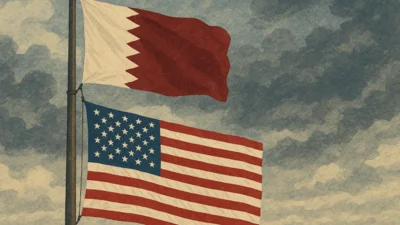More information about Ireland is available on the Ireland Page and from other Department of State publications and other sources listed at the end of this fact sheet.
U.S.-IRELAND RELATIONS
U.S. relations with Ireland have long been based on common ancestral ties and shared values. In addition to regular dialogue on political and economic issues, the U.S. and Irish governments benefit from a robust slate of exchanges in areas such as commerce, culture, education, and scientific research. With Ireland’s membership in the European Union (EU), discussions of EU trade and economic policies, as well as other aspects of broader EU policy, constitute key elements in the U.S.-Ireland relationship.
Many Irish citizens take temporary residence overseas for work or study, mainly in the United States, Australia, Canada, the United Kingdom (U.K.), and elsewhere in Europe. The Summer Work Travel category of the U.S. Department of State’s Exchange Visitor Program allows Irish youth to participate in a cultural and educational enrichment program that includes temporary and seasonal work and the opportunity to travel in the United States. Exchange visitors are required to return home after their program ends.
In Northern Ireland, “Nationalist" and “Republican" groups seek a united Ireland that includes Northern Ireland, while “Unionists" and “Loyalists" want Northern Ireland to remain part of the United Kingdom. The United States seeks to support the peace process and devolved political institutions in Northern Ireland by encouraging the implementation of the U.S.-brokered 1998 Belfast Agreement (also known as the Good Friday Agreement).
U.S. Assistance to Ireland
The International Fund for Ireland (IFI), established by the British and Irish governments in 1986, provides funding for projects to sustain the peace process and to generate cross-community engagement and economic opportunity in Northern Ireland (the United Kingdom) and the border counties of Ireland. The U.S. government has contributed more than $544 million to the IFI since its establishment.
Bilateral Economic Relations
Economic and trade ties are an important facet of overall U.S.- Irish relations. The United States is a major goods exporter to Ireland, ranking second only to the United Kingdom. U.S. goods exports to Ireland include pharmaceutical products, electrical components and equipment, computers and peripherals, aircraft, and optical/medical instruments. The United States is Ireland’s top export destination; about 27 percent of all Irish goods exports go to the United States. Irish goods exports to the United States include pharmaceutical products, organic chemicals, optical/medical instruments, and beverages. U.S.-Irish trade in services is growing as well. U.S. services exports to Ireland include intellectual property licenses, research and development, and management consulting services. Major Irish services exports to the United States include insurance and information services.
Two-way investment between the United States and Ireland remains strong. Ireland’s membership in the EU attracts U.S. companies that use Ireland as a base to sell into Europe and other markets. There are approximately 700 U.S.-owned firms operating in Ireland that employ about 155,000 people in jobs that span from the manufacturing of high-tech electronics, computer products, medical supplies, and pharmaceuticals to retailing, banking, finance, and other services. Many high-tech firms, such as Google, Facebook, and Twitter, base their European operations in Ireland. Since 2015, Ireland also has become an important research and development center for U.S. firms in Europe. Irish firms are significant investors in the United States across a wide range of sectors. More than 500 Irish companies operate in the United States, having invested more than $225 billion and employing some 110,000 workers as of 2019. In 2017, the Embassy opened a Select USA office to encourage and assist Irish companies seeking to invest and create jobs in the United States.
Ireland’s Membership in International Organizations
Ireland and the United States belong to a number of the same international organizations, including the United Nations, the Organization for Security and Cooperation in Europe (OSCE), the Organization for Economic Cooperation and Development (OECD), the International Monetary Fund (IMF), World Bank, and World Trade Organization (WTO). Ireland also is a member of the North Atlantic Treaty Organization’s (NATO) Partnership for Peace (PfP) program.
Bilateral Representation
Principal embassy officials are listed in the Department’s Key Officers List.
Ireland maintains an embassy in the United States at 2234 Massachusetts Ave. NW, Washington, DC, 20008 (tel. 202-462-3939). Ireland also maintains consulates general in Atlanta, Austin, Boston, Chicago, New York, and San Francisco.
More information about Ireland is available from the Department of State and other sources, some of which are listed here:
CIA World Factbook Ireland Page
U.S. Embassy
History of U.S. Relations With Ireland
U.S. Census Bureau Foreign Trade Statistics
Export.gov International Offices Page
Library of Congress Country Studies
Travel Information
Source: U.S Department of State, Bureau of European and Eurasian Affairs








